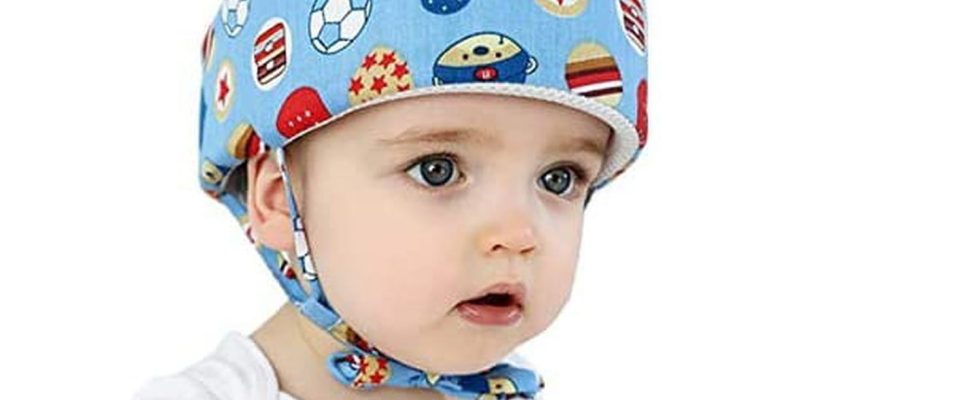Your baby is starting to crawl, stand up and grab all the objects in his way? And inevitably, it happens to fall! To limit the impact caused by falls, some parents opt for a protective helmet. But, is it really a good idea? The opinion of Dr Jérôme Valleteau de Moulliac, pediatrician in Paris.
If the falls when learning to walk are normal and generally benign, they sometimes give young parents cold sweats. And for good reason, no one likes to see their baby get hurt and cry. To protect him, some parents rely on a protective helmet that can be adjusted to the size of the child’s head. Equipped with a foam shell, this accessory is specially designed to absorb shocks and prevent, in the most serious cases, head injuries. If it can be useful to reassure parents over a short period, it is however not recommended to use it in the long term. Explanations with Dr Jérôme Valleteau de Moulliac, pediatrician in Paris.
From what age should a baby crash helmet be used?
Most hard hat manufacturers recommend their use from 8 to 20 months, or for a head circumference between 44 and 52 centimeters. A period that corresponds to a crucial phase in the development of the child: learning to walk, first on all fours, then standing.
What about baby crash helmets? Pediatrician’s opinion
Pediatricians seem unanimous on the issue: the use of a protective helmet is detrimental to the child’s development. Dr Jérôme Valleteau de Moulliac, a pediatrician in Paris, is not at all in favor of it. “At such a crucial moment as learning to walk, the baby must learn to fall in order not to fall again. When the baby is on all fours and bumps into a wall, it will do it two or three times and then won’t do it again.” explains the expert.
Indeed, when baby stands up and starts to walk, experience shows that babies tend to fall on their buttocks, and when they fall forward, they have a natural reflex that pushes them to put their arms forward. Not to mention that the child falls from its height, in other words, it is not a question of considerable falls. “There has never been a major accident and a baby’s head is much stronger than you think. The few falls he is likely to make will teach him to control his balance and stop falling. So it makes no sense to make your baby wear a crash helmet. As with everything in life, you have to assess the risk-benefit balance: the risk is so zero that the benefit of the helmet seems totally random to me”, says the specialist.
“The few falls he is likely to make will teach him to control his balance and not fall again. It therefore makes no sense to put a crash helmet on his baby”.
“Wearing a protective helmet is part of a kind of precautionary system at all costs which cannot help the child to develop, because by definition, the child needs to do experiences that are sometimes a little painful in order to stop doing them later. Entire generations have learned to walk without a helmet and have done very well. On the other hand, the question may arise in children with coagulation deficits or epilepsies.adds Jérôme Valleteau.
Thanks to Dr Jérôme Valleteau de Moulliac, pediatrician in Paris
